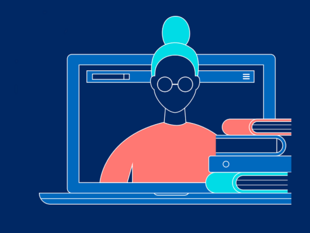Herzlich Willkommen bei der TÜV NORD Akademie!
Weiterbildungsmaßnahmen sollen sowohl effizient, als auch effektiv sein. Deshalb ist das Angebot der TÜV NORD Akademie heute so vielfältig wie noch nie.
Ob Präsenzseminar, Webinar, E-Learning oder Online-Unterweisung – bei uns können Sie das Lernformat wählen, das am besten zu Ihren individuellen Bedürfnissen und Zielen passt. Zusätzlich unterstützen wir Sie auf Ihrem Weg zum Erfolg durch individuelle Unternehmenslösungen wie beispielsweise eine Expertenberatung.
Über 520 Seminarthemen rund um Unternehmensführung, Qualität und Technische Sicherheit, Umwelt und Energie, Arbeits- und Gesundheitsschutz und Logistik erwarten Sie und Ihr Team.
80.000 Teilnehmende pro Jahr entscheiden sich für Weiterbildung in TÜV NORD-geprüfter Schulungsqualität . Qualifizierte Referierende vermitteln Wissen mit einem hohen Maß an Praxisbeispielen, um einen nachhaltigen Wissenstransfer zu garantieren.
Finden Sie jetzt Ihre Weiterbildung!
Seit 1. Januar 2024 positioniert sich die TÜV NORD GROUP mit einer neuen Struktur der sechs Business Units. Mit Blick auf die Kompetenzen, die Menschen in einer zunehmend technologisch geprägten Welt benötigen, bündelt TÜV NORD Diagnostik, Beratung und Weiterentwicklung in der neuen Business Unit People & Empowerment.
VR Trainings: Der neue Standard für erlebnisorientiertes Lernen
Von Lernenden werden heutige Lernangebote oft als notwendiges Übel wahrgenommen, da sie meist ausschließlich theoretisch und wenig fesselnd sind: Virtual Reality und Künstliche Intelligenz revolutionieren gemeinsam die Bildung. Steigern Sie Lerneffekte und den künftigen Erfolg Ihres Unternehmens durch fesselnde digitale Lernerlebnisse, in denen Mitarbeitende praktische Erfahrung sammeln.
Das Lernen mit VR und AR bringt viele Vorteile mit sich, wie beispielsweise:
- Wissen bleibt nachweislich besser in Erinnerung
- Lerneinheiten könnenn beliebig oft wiederholt werden
- Simulation kritischer Situationen ist möglich
- Spart finanzielle und zeitliche Ressourcen




TÜV Studie: Neue Skills für eine neue Zeit




In der TÜV Weiterbildungsstudie wurden 500 Personalverantwortliche zu ihren Präferenzen in Bezug auf Weiterbildungen befragt. Die "TÜV Weiterbildungsstudie 2024" zeigt, dass Unternehmen die Bedeutung der Weiterbildung erkennen, insbesonders für den Erhalt ihrer Wettbewerbsfähigkeit, die Erfüllung von gesetzlichen Anforderungen sowie die Steigerung der Mitarbeiterbindung.
Vor dem Hintergrund der verschiedenen Herausforderungen, denen Unternehmen aktuell entgegenblicken, setzte sich die Studie unter anderem mit folgenden Themen auseinander:
- Organisatorische Umsetzung von Fortbildungen
- Neue Anforderungen durch Digitalisierung und KI
- Kulturwandel durch New Work






















